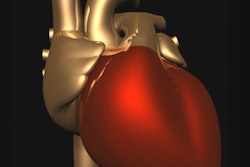Monday, November 26 | 10:30 a.m.-10:40 a.m. | SSC03-01 | Room E451A
By analyzing CT lung cancer screening exams, an artificial intelligence (AI) algorithm can predict the likelihood of five other major diseases, researchers from California will report in this presentation.Lung cancer screening with low-dose chest CT has been demonstrated to lower mortality, but it also has potential harms such as overdiagnosis, radiation exposure, and increased costs to the healthcare system, noted presenter Aditya Sheth of the University of California, San Francisco (UCSF). The UCSF researchers wanted to find ways to increase the overall benefit and value of lung cancer screening.
"Much additional information is hidden inside chest CT (beyond traditional interpretation), but this information is untapped; radiology currently doesn't quantitatively or qualitatively describe it, sometimes because it manifests only in weak-to-moderate biomarkers and sometimes because the community simply does not know about it, even for strong biomarkers," Sheth said. "In particular, weakly to moderately correlated imaging biomarkers are not readily recognized by human radiologists. Our goal was to leverage the power of a 3D convolutional neural network (CNN) to analyze the big data and automatically uncover them in a fully data-driven way."
Using CT studies from the National Lung Screening Trial, they developed and validated a 3D CNN algorithm that could predict the likelihood of hypertension, heart disease (including heart attack), diabetes mellitus, chronic obstructive pulmonary disease, and stroke. The model could automatically predict major disease information from screening chest CT with reasonable accuracy, and it could potentially become a useful supplement to traditional human radiologic interpretations, Sheth said.
"We have demonstrated a successful 3D convolutional neural network model that can be used to extract weak-moderate associations in big 3D imaging datasets," Sheth told AuntMinnie.com. "This deep-learning approach can serve as a technical framework for future data-driven imaging biomarker extraction studies that involve different body parts or imaging modalities."





















